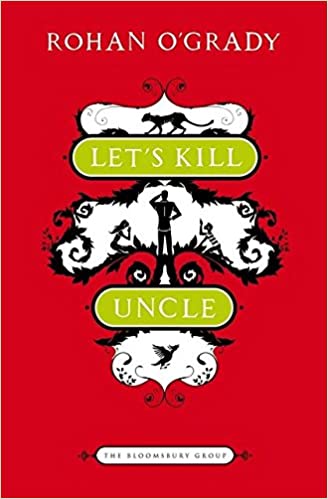

A WFH booklist
A WFH booklist
As we experience our new life in lockdown, escaping into a good book is an even greater pleasure than usual. It’s made me think about books that might resonate in this time of social distancing, self-isolation and home-schooling. Here are a few gems that you won’t see in the current bestseller lists but may strike a chord as we all get accustomed to the new normal.
Firstly, the whole WFH issue. Love it or hate it? Maybe you’re relishing tackling long-division with your wee ones and secretly pleased at your ability to focus on work despite the temptation to re-watch the entire 16 series of Grey’s Anatomy. Or perhaps you’re already tired of the sounds of Peppa Pig in the background and in awe of any teacher who has the ability to make your child GET ON WITH SOMETHING, anything, pleeease… Whichever camp you fall into, you may catch a glimpse of yourself in Dorothy Canfield’s The Home-Maker. This American novel from 1924 is a great exploration of gender roles and family relationships upended by unexpected events. I wonder how many of us will choose to change our way of life and working when this is all over?


Next, a timely warning if you keep chickens: do count them. Seriously. According to my neighbour who homes retired battery hens, these feathered friends are being stolen willy nilly. Of course, theft and racketeering in times of trouble are nothing new. Fair Stood the Wind for France, H. E. Bates’s WWII story of a British bomber crew shot down in rural France, examines the best and worst of a nation in crisis, when the timely gift of a chicken can save your life. The writing is sparse and utterly beautiful. One particular scene in this story also gets my prize for best kitchen sink drama. I can’t tell you more without a spoiler.
If you are mourning a cancelled holiday (a first-world problem, I know) then a travel book could just make things worse. Instead, why not pick up Penelope Fitzgerald’s Innocence – you’ll be swept up in a bizarre, comic, and erratic love affair set in Florence and the villa-adorned hills of Chianti. The opening chapter on the history of the Ridolphi family is wonderfully eccentric – it made me wince and laugh at the same time. A case of brand identity taken to extremes.


Talking about love stories… back to children. How do you feel about them? Obviously if they’re yours, you love them. But at the moment, during any given day, your feelings may be more ambivalent than that. Angels or demons? Innocent or manipulative? If this is you, then I heartily recommend Let’s Kill Uncle, a black comedy by Canadian, Rohan O’Grady, that sees two children carry out an extraordinary murder and get away with it. Written in the 1950s, this funny, observant, chilling and subversive book was, Donna Tartt observes, “way before its time”. Storytelling at its best – right until the very last line. It’s a joy.
Finally, but perhaps most difficult to come to terms with, there’s the confinement. Are you railing against it, or embracing it? Either way, you may now have time to take on a weighty classic. In Little Dorrit, Charles Dickens gives us a book for our times. Imprisonment is covered from every angle: physical, mental, historical, emotional, social, financial – even meteorological (we are British after all). It’s the perfect example of the novel as integrated campaign. The central characters, at first confined to the Marshalsea debtor’s prison, are set free only to step from one prison into another as they find themselves constricted by society’s suffocating etiquette. Then as commerce collapses and society unravels, love and kindness unlock the possibility of true freedom and happiness.
And that, I think, is what we are discovering daily at the moment. Though most of us are currently housebound, we are communicating, reconnecting and reaching out more. Today, my 87-year old father had a phone call from his childhood best friend who he hadn’t spoken to in years. A neighbour who has just lost her husband has been overwhelmed by the kindness of the community as they have showered her with cards, flowers and visits – albeit from the far side of her glass backdoor. I’m sure we’ve all seen amazing acts of kindness and neighbourliness that would have seemed unlikely and may even have felt intrusive only a few weeks ago. Let’s face it, I probably wouldn’t have written something like this last month. We are all learning new lessons about the power of communication.
Maggie Henry
Recent posts
-
23rd May 2024
From equality to equity – the changing face of EDI -
22nd June 2023
Why go looking for your inner child? -
8th June 2023
Why employer-supported volunteering does everyone good
